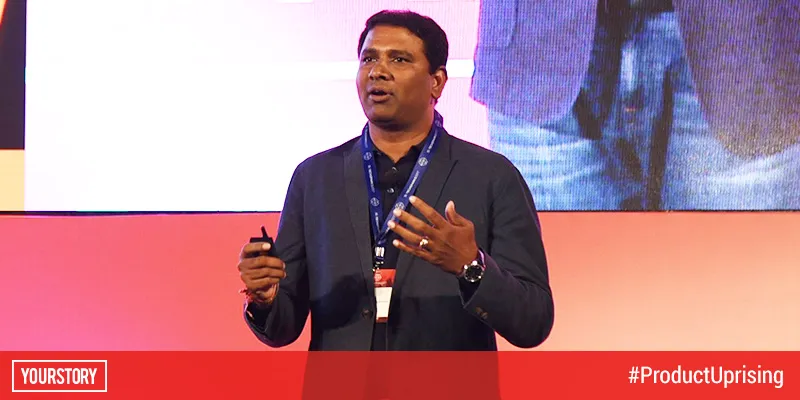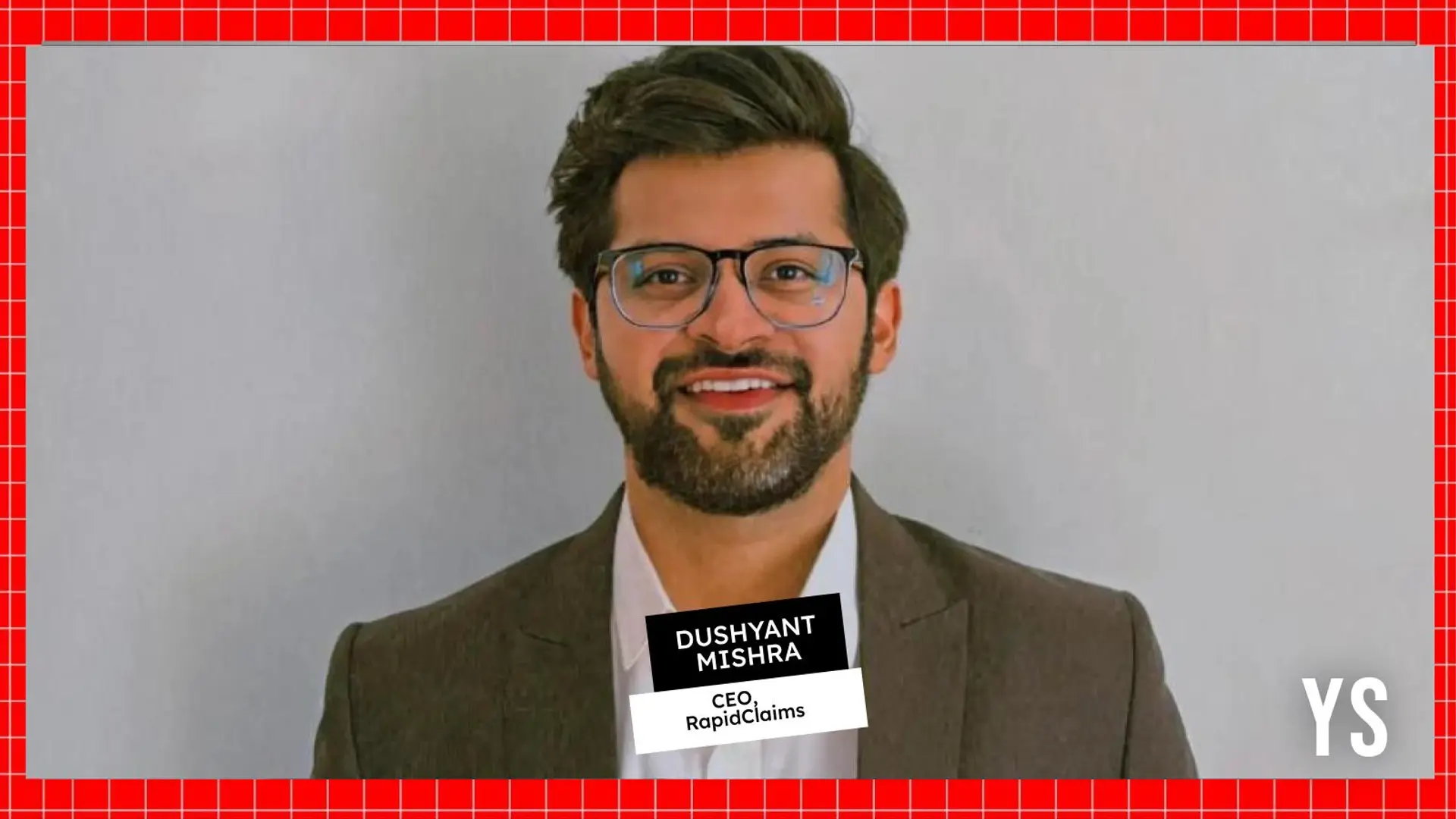After catching Sachin Tendulkar's eye, IoT company Smartron now looks to raise $500 million
Software product companies have never been our calling card. India has traditionally struggled to produce champion companies in this space, due to a variety of factors. YourStory brings to you a dozen startups in the space, under #ProductUprising which have the potential to scale, despite the hurdles
After hitting Rs 200 crore in revenue, Mahesh Lingareddy, Chairman of Smartron, wants to go all out and become a flag-bearer for the Indian design and product ecosystem.
Some people take big bets; for them, it is either make it or break it. The chairman of a four-year-old Hyderabad-based company Smartron made headlines when he won over Sachin Tendulkar as an investor, and then raised Rs 200 crore from a clutch of high net worth investors in 2015 and 2016. He now has grand plans of raising $500 million to build one of the largest product design and tech companies from India.
But the road to success hasn’t been easy.
Mahesh Lingareddy says: “I never made money in the first eight years of running my earlier company, until it was acquired by a large company.” That company was Soft Machines, which was launched in the US, and sold to Intel for a handsome amount – reportedly around $250 million in 2016.
Mahesh reiterates the fact that product ideas require long-term vision and capital.
After Soft Machines, Mahesh had bigger ambitions: he wanted to design in India and make the country a big player in IP. “I wanted to take Indian IP to the globe,” he says.

Indian product companies
Does India have the wherewithal to support product companies with large sums of capital? The answer is not yet. This is what Mahesh wants to prove wrong. History is ripe with great products from India not being funded by long- term capital. Chetan Maini’s Reva Electric Car Company received as little as $50 million when compared with Tesla’s $800 million fundraise. Reva was ultimately sold to Mahindra and Mahindra for an undisclosed sum.
The story of Indian product companies not being supported by the Indian product ecosystem doesn’t stop there. Ineda Systems, which makes low power chips, could raise only $43.3 million. Sankhya Labs, which has been around for a decade, has not been able to raise substantial capital. Amagi Media Labs, meanwhile, has raised around $45 million.
Compared to the funding that has gone into consumer-led businesses, where billions of dollars have been invested, the Indian innovation ecosystem has been given a mere glance in terms of dollars. This is where Mahesh wants to be a flag bearer of the Indian product ecosystem. For him, it is all about big bets and winning large deals in the industrial IoT space, which can inspire other product companies in India.
“I am fully convinced that I have to raise close to Rs 10,000 crore and that is the only way one can build a large IP-driven company from India,” Mahesh says, adding that Indian companies should go out and build global products.
Riding on TronX
Smartron plans to close 2018 with revenues of Rs 200 crore, from smartphones and tablets, and is also building its own cloud services - TronX - for its IoT practice.
The TronX cloud powers all IoT device data into the cloud and powers everything from home to offices. The cloud aggregates multiple app services, from music to cloud business, and seamlessly white labels it for the user. For corporates, the TronX app handles the entire building on a tab. Smartron’s IoT devices are shipped to Korea and the Middle East. The company is also piloting its product with the largest home-grown retailer. However, Mahesh does not want to reveal his clients.
Most of the business for Smartron comes from the device play, smartphones and surface notebooks.
“The funny thing is that Indian investors are not betting on the Indian product ecosystem because it requires a vision. If you see the success of California, Japan, and China, it is all because of these large-scale bets taken by local corporates,” Mahesh says.
He maintains that India’s strengths are not in manufacturing as the economies of scale are in China. However, he believes the country needs to own the IP.
So he designs in India, manufactures his products in China, and ships them here. The B2B IoT business, which will kick-start in a few months, works on long-term contracts and sharing a percentage of the cost saved in the facility to manage energy. For example, if a facility was spending Rs 1 crore on electricity bills and the IoT investment brings down the spend to Rs 50 lakh over a five year period, then the compay pays a percentage of the saving to the IoT company.
The way ahead
Like Mahesh’s Smartron, there is Cattleya Technosys, which has Rs 100 crore in revenue and is focused on IoT in the telecom industry.
Badrinath Rao, Co-founder and CEO of Cattleya Technosys, says, “We are a machine-to-machine platform with SaaS service for large banks and telecom operators. If there is an ATM tracking security, then our box is in one of them.”
He adds that to build an IoT product company takes at least seven to eight years because of the R&D and also the sales and implementation cycles behind closing a deal.
Mahesh may get large capital to back him from the US, because he believes IOT is going to be a big play globally.
Gartner Inc forecasts that 8.4 billion connected things were in use worldwide in 2017, up 31 percent from 2016, and will reach 20.4 billion by 2020. Total spending on endpoints and services will reach almost $2 trillion in 2017. Regionally, Greater China, North America, and Western Europe are driving the use of connected things and the three regions together will represent 67 percent of the overall Internet of Things (IoT) installed base in 2017.
Now, this is the market that Mahesh is after. The only thing is, he has done is gone for a daring “Go for broke”. “Somebody has got to try it,” he tells YourStory.
Hopefully, in five years’ time, there will be a product unicorn rising out of India.







